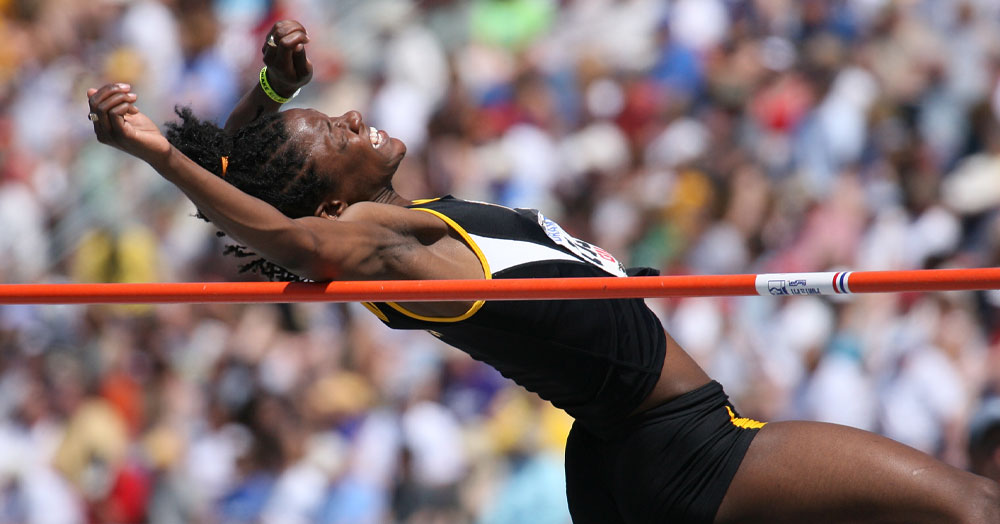Iowa Athletics Hall of Fame
Peaches Roach Findlay (07BA, 11MAT)
Peaches Roach Findlay remembers her recruiting visit to Iowa. She was from Jamaica, and she came to Iowa City for the Hawkeyes’ Twilight meet in May. It was 60 degrees that night.
“For me, that was cold,” Findlay says, laughing at the thought.
Her soon-to-be coach, James Grant, who was from Jamaica, told her that it would get a “little bit colder.”
Then came Findlay’s first winter, and well…
“I remember after that, I wanted to tell him, ‘It’s like being in a freezer,’” she says. “It was a big shock. I don’t think I could imagine how cold it could get.”
Winter weather aside, Findlay was glad she made the choice to come to Iowa.
Findlay was a four-time All-American, a three-time Big Ten indoor high jump champion (2004, 2005, 2007) and a two-time outdoor high jump champion (2004, 2007), the only Hawkeye to win five Big Ten titles in one event.
Her decision to be a Hawkeye, which some around her questioned, proved to be the right one, as she becomes an inductee into the UI Athletics Hall of Fame.

PHOTO: HAWKEYESPORTS.COM
“It really does mean a lot to me,” Findlay says. “When I made the decision to go to Iowa, it wasn’t a program known for its track and field athletes. A lot of people questioned why I went there, and suggested I could have gone to other places. I felt it was going to be a good decision, so it really means a lot to me that I made a choice that wasn’t popular at the time, I went and had a good career and helped improve that program.
“My decision was solely based on Coach Grant. He was Jamaican, and he presented himself as a father figure to me. I felt like I was going to be safe in that space, even though it was a remote space, and that I was going to be cared for and protected.”
Findlay was the 2004 Big Ten freshman of the year (outdoors) and holds the school indoor (6-0¾ ) and facility (6-0) indoor record in high jump, as well as the school (6-1¼) and facility (6-0½) outdoor record in the high jump.
“Being freshman of the year was an achievement that stayed with me,” Findlay says. “I never took for granted winning a championship. Every time I won a championship, I really valued it, because that’s why I came. When I qualified for nationals, it was important for me.
“It’s not promised. I remember one championship where I did not get a medal in the high jump, and I cried my eyes out. However, that same championship, I earned the bronze medal in the 100. So all of that was important to me.”
Findlay, who now teaches science at North Wake College and Career Academy in North Carolina, valued her time at Iowa.
“I made lifelong friends there,” she says. “And yanking me from where I was and putting me into a new situation really made me grow up.”
—JOHN BOHNENKAMP
